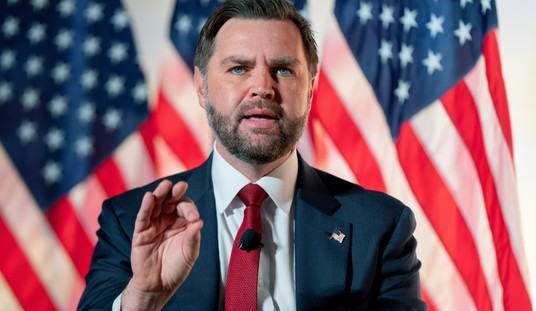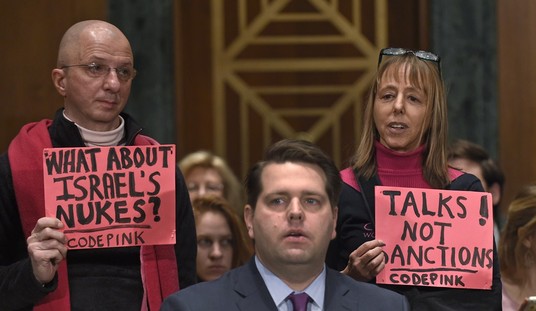Shortly after President Trump was inaugurated, his consigliere (or Svengali, depending upon your point of view) made some waves by a comment he made on the press:
“I want you to quote this,” Mr. Bannon added. “The media here is the opposition party. They don’t understand this country. They still do not understand why Donald Trump is the president of the United States.”
And it continues
Steve Bannon, striding past reporters outside @PressSec office: "the opposition party, all lined up!"
— Kevin Liptak (@Kevinliptakcnn) February 15, 2017
Steve Bannon walks by a large group of reporters camping out, says to us, "The opposition party, all lined up."
— Francesca Chambers (@fran_chambers) February 15, 2017
Bannon emerges w/Priebus from @presssec office, spots 20 or so reporters camped out, says, "The opposition party, all lined up."
— Todd J. Gillman (@toddgillman) February 15, 2017
Since that time we’ve seen substantial evidence that his was more than rhetoric. New organizations (or whatever you want to call GatewayPundit) got seats in the White House briefing room. The White House Correspondent’s Association has been making noises about cancelling the “nerd prom.”
Trump has started calling on reporters from smaller outlets for questions which has some in the media on the verge of lighting their own hair on fire:
All six of those outlets are conservative or conservative leaning. In the case of the last two news conference — Feb. 13 and 15 — none of the questions asked were about Michael Flynn, the recently departed national security adviser, or the recent revelations regarding the regular contact between the Trump campaign and Russian intelligence officials. (CNN’s Jim Acosta shouted a question at Trump regarding Flynn at the end of Wednesday’s news conference but Trump didn’t acknowledge it.) That’s stunning given not only how central the Russia story has been to the political narrative over these past five days but also because it has major repercussions on our national security and America’s place in the world — two key focuses for Trump’s presidency.
…
The simple fact is that Trump is well within his rights to call on any member of the White House press corps that he chooses. And, calling on conservative outlets is totally fair game. My issue is calling on only conservative outlets as a means to avoid answering or even engaging difficult questions.Both questions from American journalists in Wednesday’s news conference were about the Middle East. That makes sense given that it was a joint presser between the United States and Israel. But, one of the two questions needed to be about Flynn and the broader Russia questions circling the Trump administration. As it was, Trump’s attack on “fake news” and his defense of Flynn — odd since he fired him! — were the only things said about the topic at the news conference. I can assure you that if Trump called on any major network, newspaper or radio station, the Flynn/Russia question would have been asked. And if I know it, then Trump and his communications team know it.
That’s a very dangerous precedent — and should worry you whether you voted for Trump, voted for Hillary Clinton or didn’t vote at all in the 2016 election. Why? Because the partisan press is not the same thing as the free and independent press. (That’s true of outlets on the right and the left.) The partisan press is playing to an audience who shares a certain viewpoint. The independent media is trying to hold power to account. That’s not the same mission even though those things do, sometimes, run in the same direction.
Hate Trump or love him, the idea that he is purposely freezing out mainstream media reporters because he doesn’t like the sort of questions they ask is chilling. Down that path lies nothing good for journalism — or democracy.
It is hard to imagine something more overwrought that this. Okay, that’s not true, it is quite possible to imagine something more overwrought:
This not a laughing matter. I'm sorry, delegitimizing the press is unAmerican
— Chuck Todd (@chucktodd) February 16, 2017
What Chris Cillizza is doing is demand that Donald Trump help him sell his newspapers. What he is demanding is that Trump do for him what Kellyanne Conway was not allowed to do for Ivanka Trump’s fashion line. If Trump has a right to call on whomever he wishes then how is him exercising this right an affront to democracy? Moreover, nothing in the First Amendment requires the president to provide news for newspapers to sell. If he doesn’t want to talk to them, they might do well to ask themselves why that is. Which brings me to the next point. This was run by Mike Allen and Jim VandeHei today in their new venture Axios (motto: we’re Politico for those with ADHD)
President Trump claims traditional media represent a stronger, more effective opposition party than the Democrats. So far, he’s undeniably correct.
This has only a little to do with the Democrats. They have no power in Congress, so no real oversight authority, and few high-profile voices since Hillary Clinton and Barack Obama exited the stage. Rarely do you see Democrats shaping the conversation about President Trump.
It has a lot to do with the media, which was unambiguously anti-Trump during and after the presidential campaign, but is now legitimately hammering away on administration scandals and missteps. A snarling press corps is turning ravenous.
The media — often, but not always, with an assist from anti-Trump career government employees — is the new U.S. Oversight Committee…
Journalists have responded by uniting in their opposition. You see this with the sharing, applauding and echoing the critical coverage by their colleagues. And constant reminders to the public to subscribe to the New York Times, Washington Post and other outlets doing a lot of the Trump investigating. These reminders are working, especially for the Times. In what the media website Poynter called a “Trump-bump subscription surge,” the Times recorded record net quarterly growth for digital subscriptions at the end of last year, with the momentum continuing into this year.
Trump gets very little positive coverage, and probably won’t. The conservative Media Research Center said coverage of Trump on the network evening newscasts during the fall was 91% hostile. That’s probably an exaggeration, but the point is no doubt true, and the coverage certainly hasn’t become any rosier since the inauguration, with the president’s approval rating near 50 percent in a divided country.
…
So Trump and senior strategist Steve Bannon are clearly right about the media being the opposition. What was once a useful foil for Trump is becoming a real danger to his ability to control the national conversation — and govern.
I think that this describes the current situation precisely. Knowing what we know about political affiliation of reporters and given the fact that their preferred party is incapable of any real action, it is not a leap to see the press starting to see themselves as Trump’s opposition. There have been more stories printed about the necessity of the press challenging Trump since January 21 than there were during the entire Obama administration about the importance of challenging Obama.
This goes back to Cillizza’s mewling about who gets questions. If the press has declared themselves to be the opposition party, why would any president take questions which are not asked in good faith but with two objectives: damaging the administration and selling more papers.











Join the conversation as a VIP Member